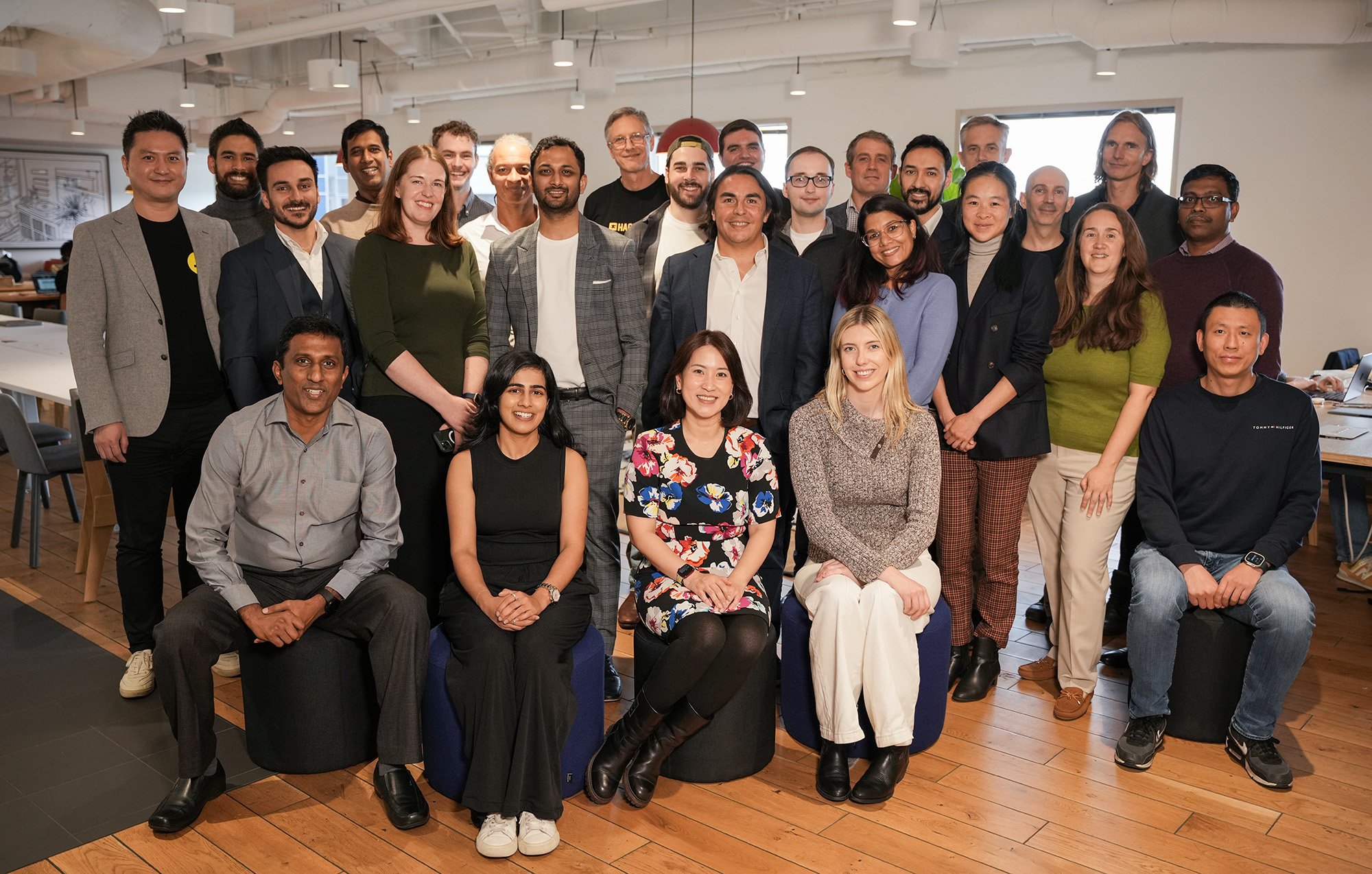Chainlink’s AI & Blockchain Initiative: Transforming Financial Data Processing for FMI Leaders
Image Source: Austin Distel | Unsplash
The rapid advancement of artificial intelligence has captured global attention, leading to a surge in AI-powered applications and significant investments from both startups and established companies. While much of this interest has centered on challenging tech industry incumbents, a new development is emerging in the financial sector. Chainlink, a leading oracle protocol in the blockchain space, has announced an initiative that combines AI, oracles, and blockchain technology to address the longstanding issue of real-time, standardized data around corporate actions.
[Read More: Exponential Baby! Understanding AI's Role in Technology's Rapid Evolution]
A Collaborative Effort Among Financial Titans
The initiative is a collaborative endeavor involving major financial market infrastructure (FMI) providers. Key participants include Swift, the world's largest inter-bank messaging platform, and Euroclear, a global clearing and settlement firm. Investment management companies such as Franklin Templeton and Wellington Management are also on board, along with prominent banks like UBS, CACEIS, Vontobel, and Sygnum Bank. The involvement of these industry leaders underscores the significance and potential impact of the project.
[Read More: Revolutionizing IT Support: Commonwealth Bank Unveils AI-Powered ChatIT]
Understanding Blockchain Technology
Blockchain is a decentralized, distributed ledger that records transactions across multiple computers in a way that ensures the security and immutability of the data. Each transaction is grouped into a block, which is then linked to the preceding block, forming a chronological chain. This structure prevents any single entity from altering past records without consensus from the network, thereby enhancing transparency and trust among participants.
[Read More: Beyond Compliance: Balancing Legal and Ethical Responsibilities in AI]
The Role of Oracles in Blockchain Technology
Oracles act as bridges between blockchains and external data sources, providing services that blockchains cannot handle independently. They enable tasks like integrating live real-world data and facilitating transactions across different blockchains. Chainlink is the most widely adopted oracle network in the crypto industry, having enabled over $16 billion in total transaction value through its data feeds and Cross-Chain Interoperability Protocol (CCIP). CCIP serves as a bridge that allows data and tokens to move seamlessly between different blockchains.
[Read More: AI Kicks Away Bitcoin? The Power Struggle for Energy Resources]
Addressing Data Fragmentation in Financial Institutions
Financial institutions worldwide grapple with complex data fragmentation issues, especially concerning corporate actions such as mergers, dividends, and stock splits. Data relevant to multiple parties often undergoes a convoluted journey through custodians, brokers, fund managers, exchanges, and investors. This process leads to inconsistent formats, duplicative sources, varying terminologies, data cleansing challenges, and sometimes incorrect information. The inefficiencies in processing corporate actions have been a decade-long problem, with thousands of regional investors, brokers, and custodian businesses facing annual costs of $3 to $5 million each. Moreover, 75% of firms have to manually re-validate custodian and exchange data.
[Read More: AI Explodes Data Growth, Tripling Since 2019: How to Balance Efficiency and Accuracy?]
Chainlink's Solution: A Unified Golden Record
Chainlink's initiative aims to mitigate the need for manual reviews by creating a "unified golden record" for corporate actions data. By utilizing decentralized blockchain oracles, the project seeks to standardize and disseminate corporate actions data in real-time, accessible to custodians, asset managers, and other relevant parties. This approach could significantly reduce errors, streamline processes, and lower operational costs.
[Read More: Understanding Deep Learning: The Brain Behind the Machines]
Leveraging AI for Data Cleansing
The project employs Chainlink oracle networks in combination with large language models (LLMs) from leading AI developers like OpenAI, Google, and Anthropic. These AI models assist in validating and structuring key financial data before delivering it onto the blockchain. The integration of AI enhances the accuracy and reliability of the data, transforming unstructured information into machine-readable formats. The on-chain corporate actions data is then transferred across both private and public blockchains using Chainlink's CCIP, ensuring broad accessibility and interoperability.
[Read More: AI Safety in Jeopardy: Anthropic's Study Exposes Vulnerability in Advanced AI Systems]
Potential Applications Beyond Financial Services
While the current focus is on corporate actions data, the methodology has broader implications. The approach can be applied to other types of unstructured data across various industries. Much of the world's human-generated information—such as legal documents, insurance contracts, real estate agreements, and social media posts—is not easily processed by machines. By combining AI and blockchain technology, there is potential to revolutionize how industries handle contracts, customer interactions, and more, leading to increased efficiency and new service offerings.
[Read More: Ashurst's AI Experiment: Pioneering the Future of Legal Practice]
Challenges and Considerations
Despite its promise, the initiative faces challenges, particularly concerning the reliability of AI models. LLMs are known to occasionally produce inaccurate or fabricated information, a phenomenon known as "hallucination". Studies have reported hallucination rates in LLMs ranging from 3% to 27%. To minimize risks, the use of pre-trained models tailored to specific datasets is likely required. Additionally, even with oracles verifying outputs through consensus-based models and utilizing multiple LLMs, systems must be in place to flag uncertainties and trigger manual reviews. This is especially critical in high-stakes environments like finance, where decisions are made based on the data provided.
[Read More: The Great AI Debate: Is the Hype Justified?]
Redesigning Financial Workflows
For the integration of AI and blockchain to gain widespread adoption, institutions must find practical applications that address key operational challenges. The combination of oracles and AI offers a powerful tool to tackle major pain points, redesign workflows, and enhance efficiency, transparency, and value in financial services. By focusing on essential yet complex processes like corporate actions data management, the initiative demonstrates how emerging technologies can deliver tangible benefits.
[Read More: AI Agents Take the Lead: The Next Evolution in Workplace Automation]













